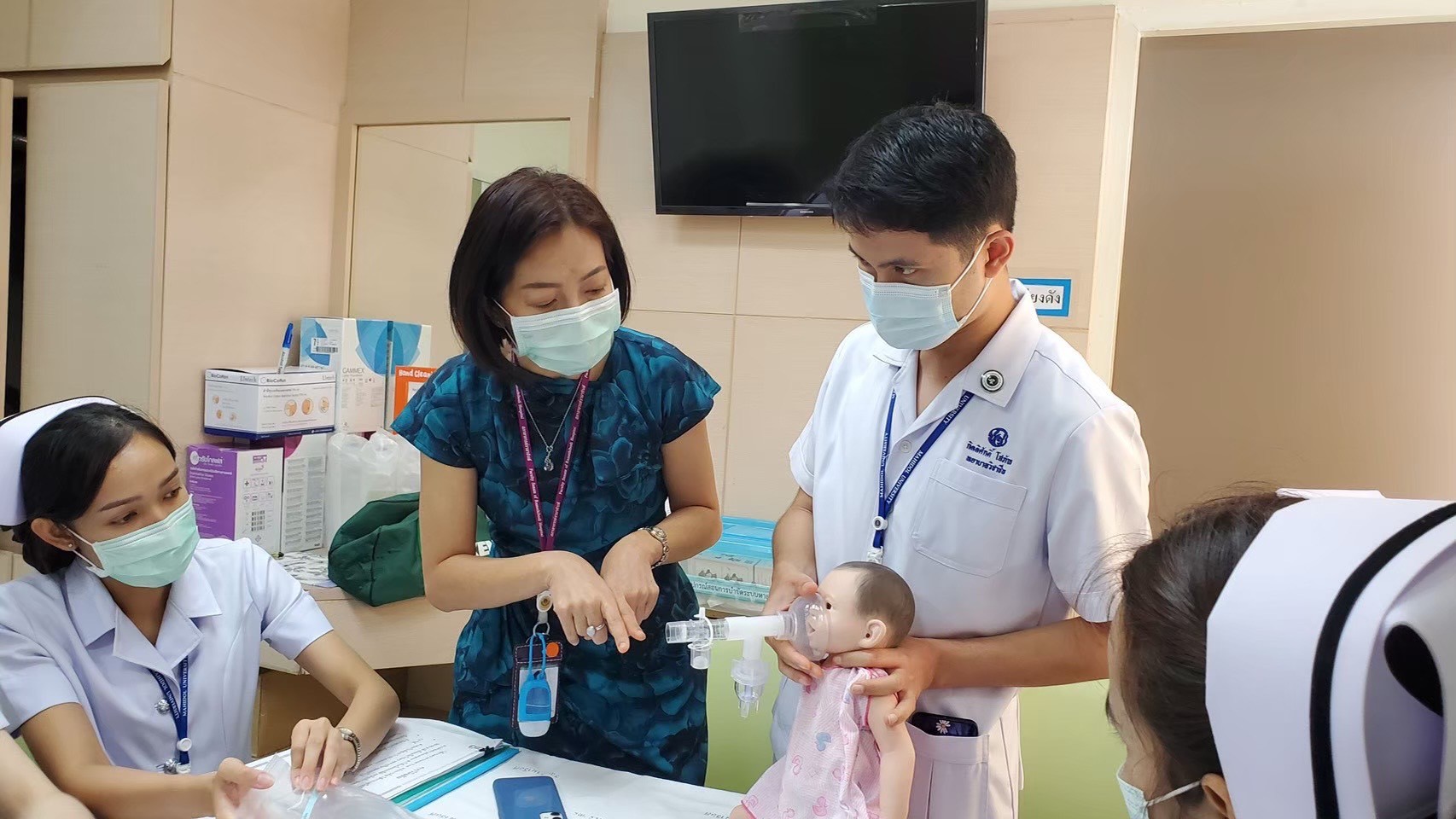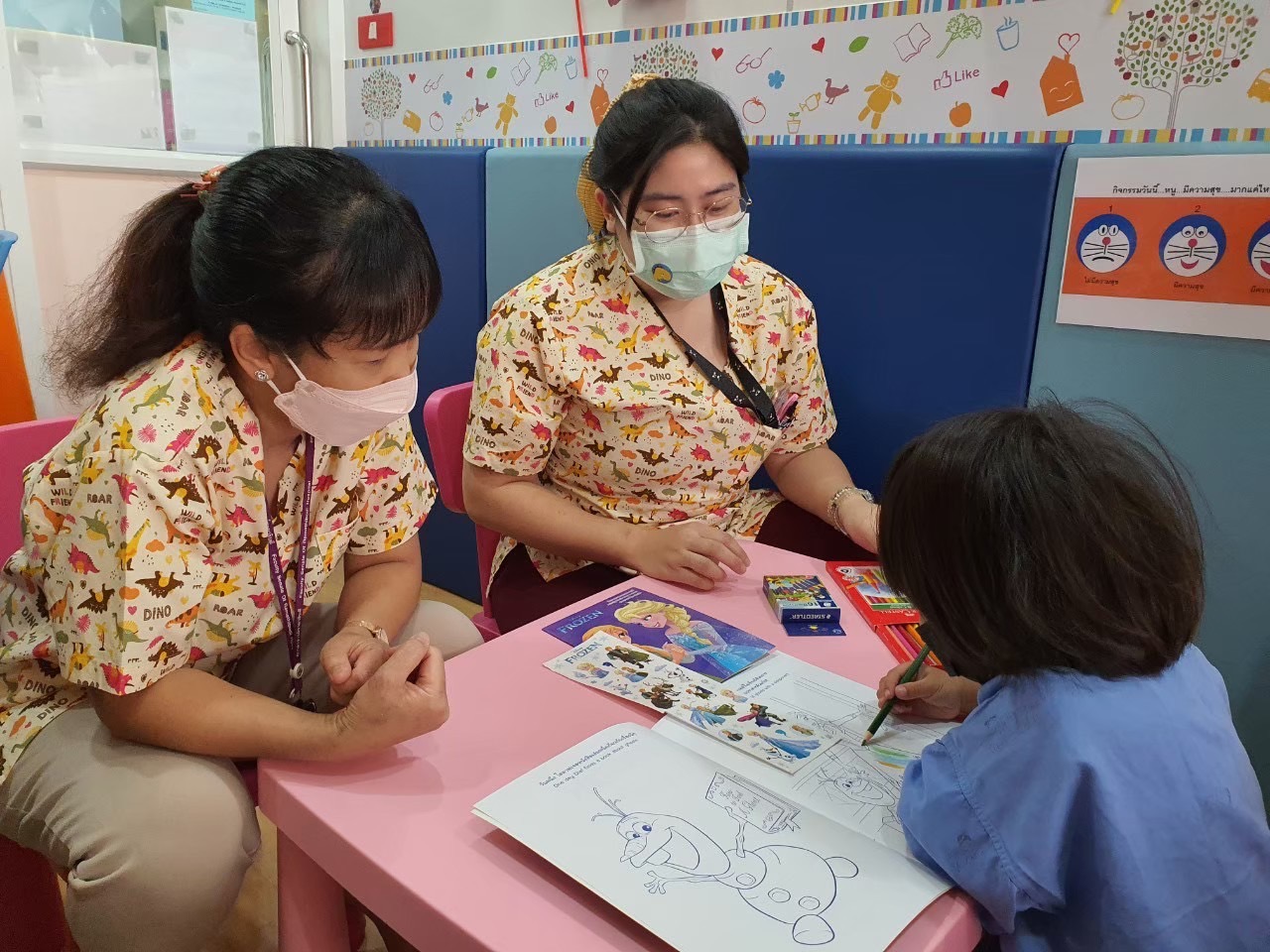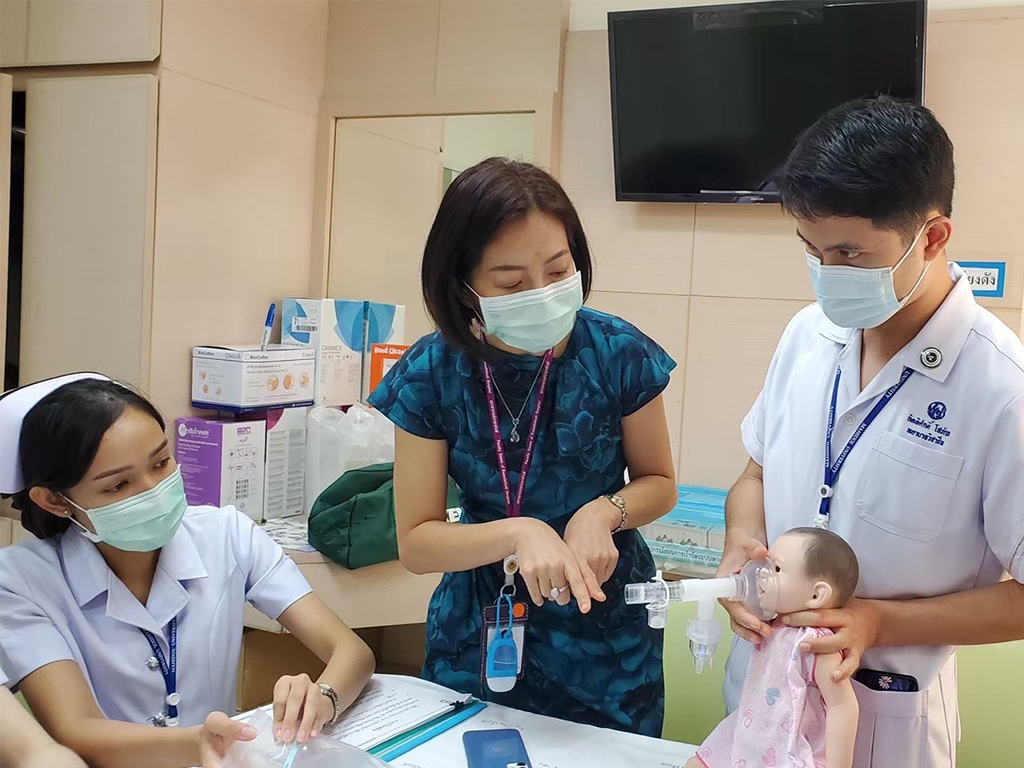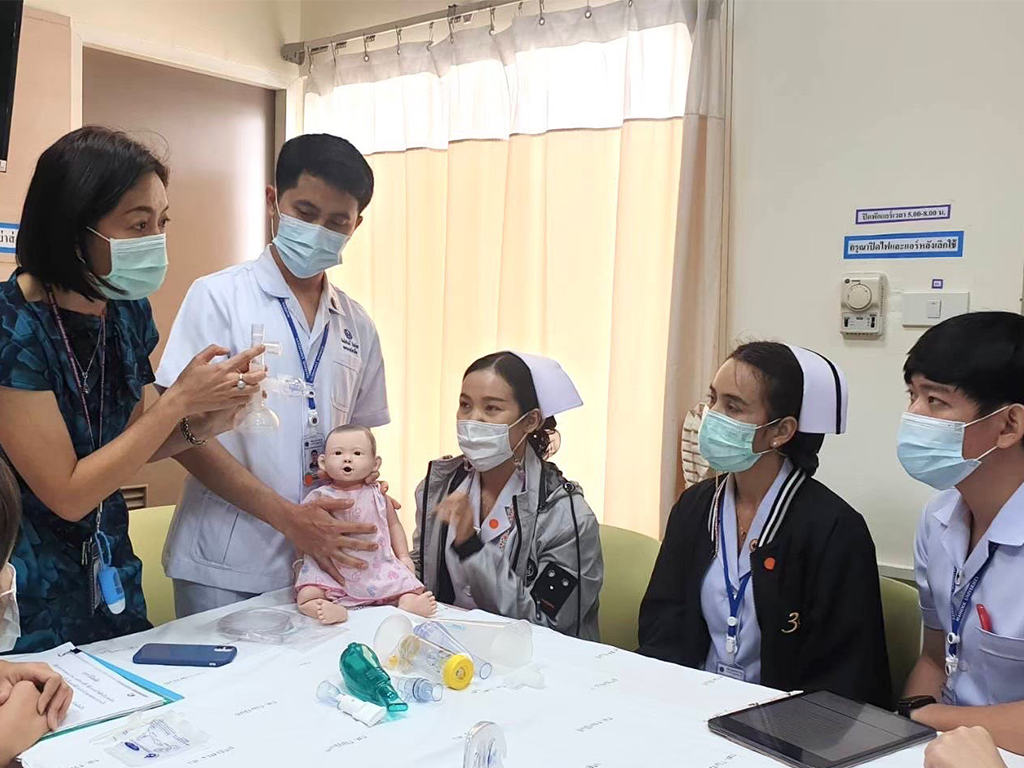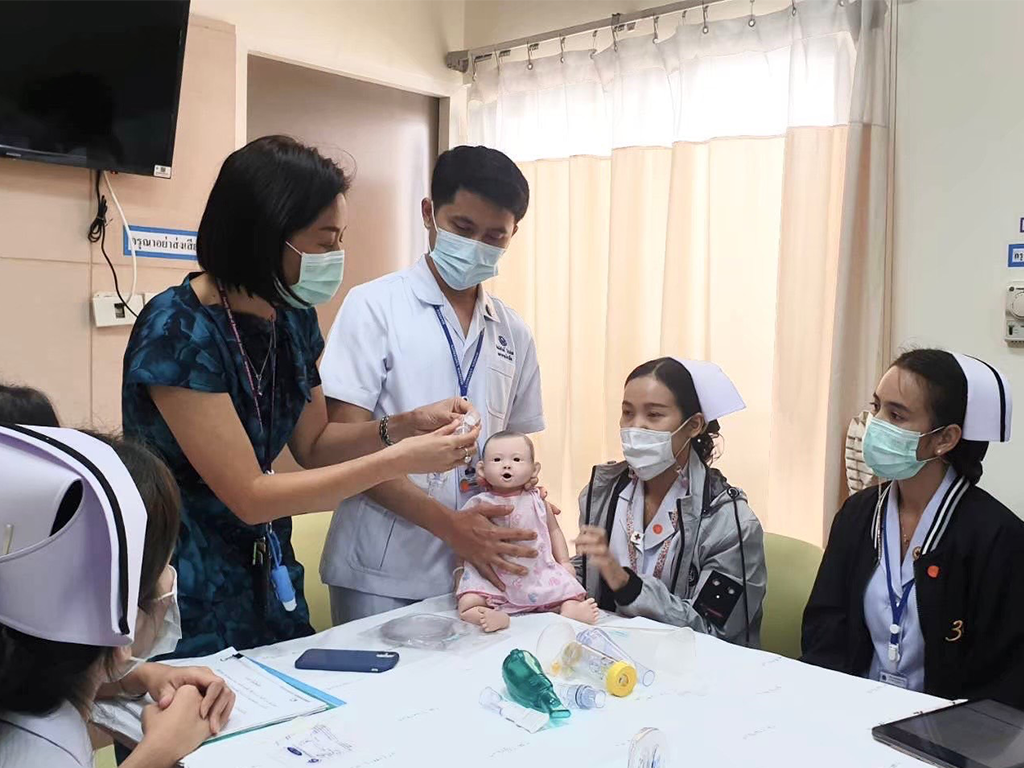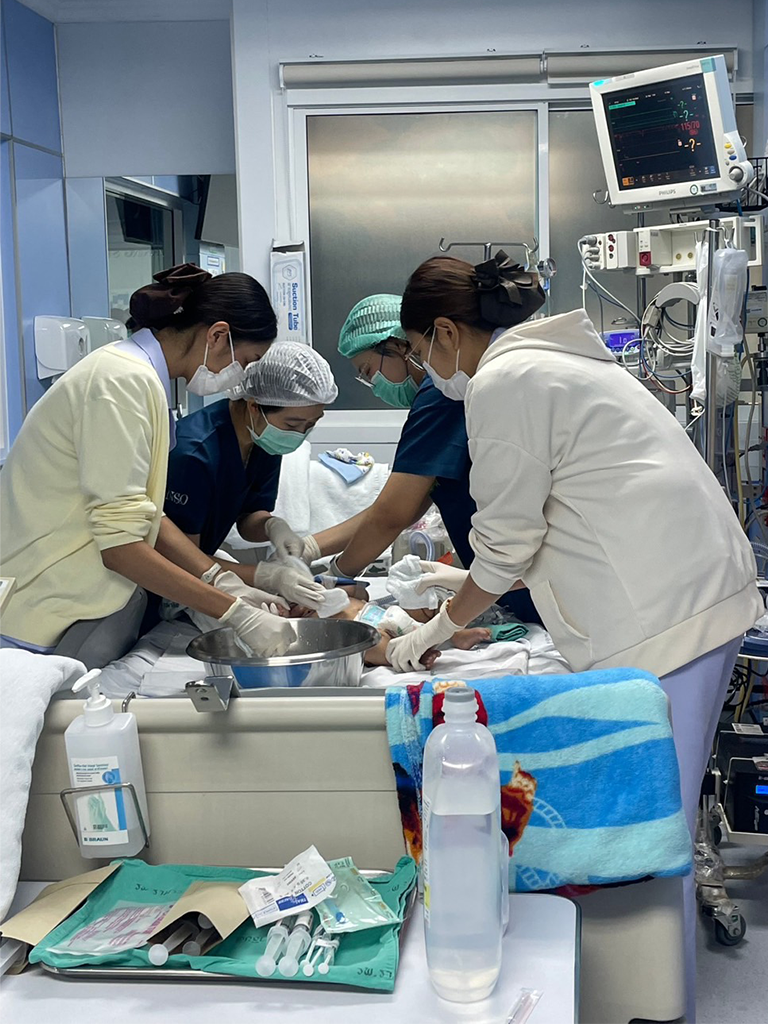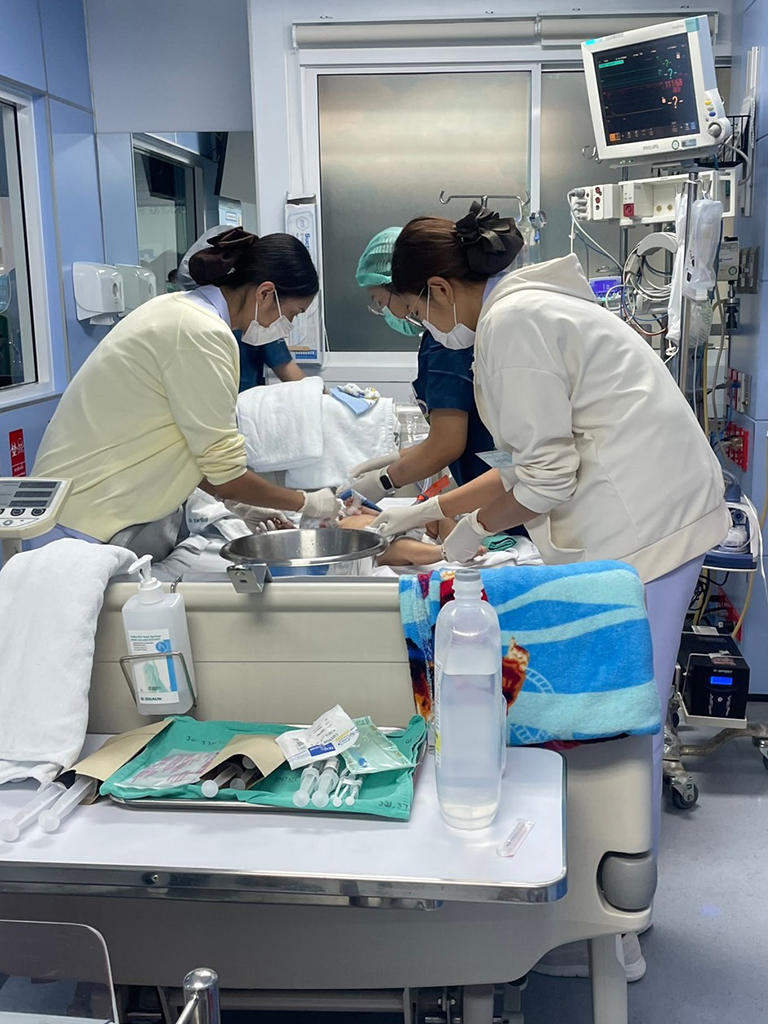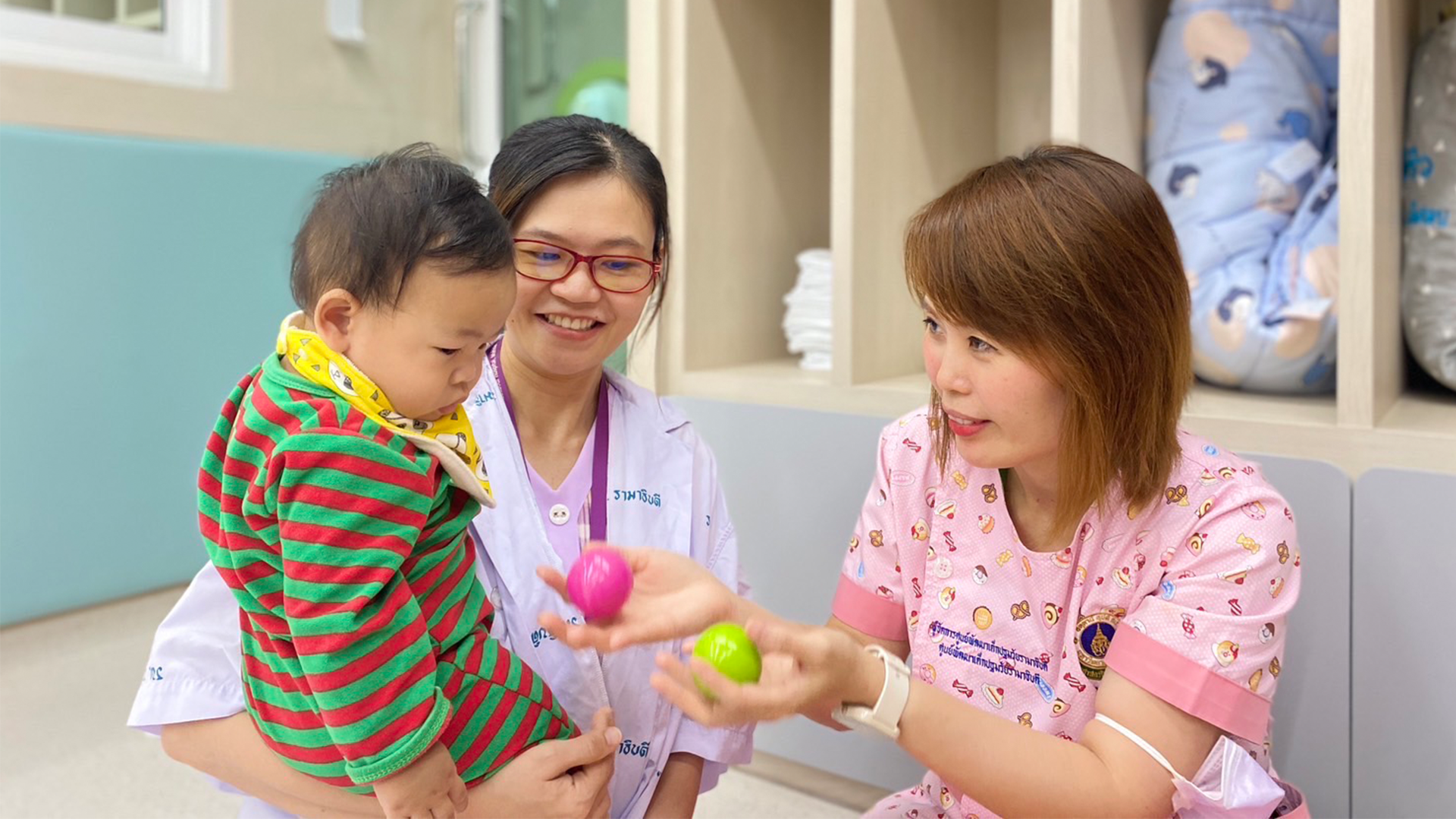
Overview
The MNS program in Pediatric Nursing is designed to provide opportunity for advanced study in specialized nursing care for children of all ages across the health spectrum ranging from wellness to acute, critical conditions and chronic complex health problems. Graduates from this program are prepared to have a clinical nurse specialist role (beginner level) to promoting health and managing healthcare needs of children and have a comprehensive grounding in research methods by completing 12 credits of research. This program offers students who want to pursue professional role development, research and leadership positions.
Clinical Experiences
Students practice in real-life situations under the supervision of clinically skilled faculty member. The training will cover the provision of healthy child care ranging from health promotion and disease prevention to prevent complications, as well as health restoration of children with acute and critical conditions and chronic with complex health problems.
Clinical rotations consist of practical training in various care settings focusing on the practice of well child care in schools settings, Child and Adolescent Outpatient Unit, Day care, lactation clinic, and the practice of health promotion and illness management at the inpatient settings in a tertiary care facility consisted of Neonatal ward, Neonatal Intensive Care Ward, Pediatric Intensive Care Ward, Pediatric Semi-intensive Care Ward, as well as inpatient pediatric wards covering children of all ages from birth to adolescence. Students participate 270 hours of clinical experience which is 135 hours per course (Nursing Care of Well Child and Risk Groups course and Nursing Care of Children with Acute, Critical, and Chronic Illness course). Students gain hands-on simulation with standardized patient before a clinical placement by undertaking one credit of Health Assessment of the Neonate and the Children course. Students can learn in technologically advanced tertiary care facility which focuses on patient care with multidisciplinary approach and learn many clinical cases presented with different complex health problems from birth to the end of life.
Other learning activities consist of site visits about work system and quality of care in leading healthcare facilities in the country and abroad. Students participate in clinical conferences, nursing rounds, journal club and relevance of training through new technologies and nursing techniques. The practical content is organized in such a way to integrate theoretical from nursing science and related sciences, empirical evidence, and advanced medical technology into practice. Students undertake a health promotion project for children in school settings and case management reports in the inpatient settings. This program builds advanced clinical practice as a beginner level of clinical nurse specialist role in providing care for well child and the pediatric patients with complex health problems.
The end program student learning outcomes of all program options are as follows:
1. Demonstrate professional and ethical behaviors consistent with practice, research, and academic work standards.
2. Utilize nursing knowledge, related disciplines, and evidence-based concepts to conduct research and provide holistic nursing care.
3. Have the ability to conduct research to improve the quality of nursing in the field of study and disseminate works in accordance with a standard.
4. Deliver patient-centered care that is safe, effective, and competent, while employing clinical decision-making skills in a culturally sensitive manner.
5. Create collaborative relationships with interdisciplinary team members, the patient, and the family to promote quality improvement initiatives for health outcomes.
6. Utilize innovative technology and information to communicate and facilitate decision-making to enhance nursing quality and risk management.
The role- specific outcomes of MNS in Pediatric Nursing are as follows:
7. Develop the role-specific as a clinical nurse specialist with the following competencies:
a) Develop comprehensive care management plans for individual pediatric patients with chronic and complex health problems
b) Deliver health promotion and disease prevention to healthy children and provide direct patient care for children with acute, critical and chronic conditions
c) Collaborate with multidisciplinary teams and families to develop comprehensive care plans for children
d) Provide guidance and coaching children and their families to take control of their complex health needs
e) Consult with a healthcare team and families for optimal child care
f) Able to be a change agent by utilizing evidence-based knowledge to implement change that improve the quality of care provided to children
g) Able to provide ethical reasoning and decision making
h) Outcome management and evaluation
